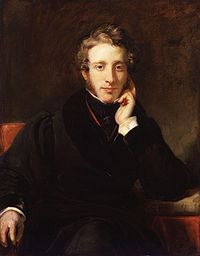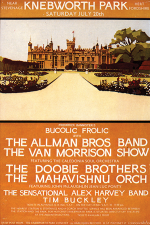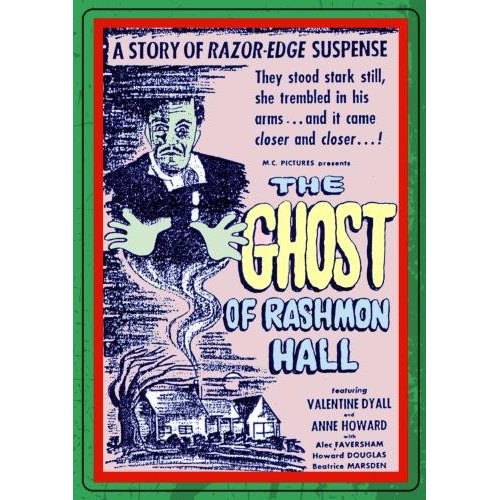Bulwer Gets His Due
It had to happen and I’m surprised it took this long. The UK has finally given up the ghost and supplied us with a haunted home that really deserves it’s share of attention – and tourists. The ancestral home since 1490 of politician, poet, playwright and prolific writer of early occult and science fiction themes, Edward Bulwer-Lytton (1803- 1873) is now officially haunted! At least that’s what his great great grandson 73 year old Lord David Cobbold is telling the press.
Knebworth Hall was home to a writer of rare genius. His best known novel was “Last Days of Pompeii” (1839) and memories of one of the first truly frightening ghost stories I read when first introduced to supernatural fiction, “The Haunted and the Haunters or The House and The Brain (1859),” riveted me to his spectral way of thinking and remains a classic I return to over and over again. It is included in Isaac Asimov’s recommended anthology, “Tales of the Occult” (1989) It also appears in The Wordsworth Book of Horror Stories.
His ghost stories are some of the earliest and finest ever written. John Sutherland, Lord Northcliffe Professor of Modern English Literature, University College had this to say:
‘Think of a great moment in the evolution of Victorian fiction and Lytton was there. He can plausibly claim to be the father of the English detective novel, science fiction, the fantasy novel, the thriller and the domestic realistic novel.”
Bulwer-Lyton penned many other works, including “The Coming Race or Vril: The Power of the Coming Race” (1871), which drew heavily on his interest in the occult and contributed to the birth of the science fiction genre. Its story of a subterranean race waiting to reclaim the surface of the Earth is an early science fiction theme. The book may have popularised the Hollow Earth theory and may have inspired Nazi mysticism. There’s no doubt this man had an effect on Victorian thinking and was certainly ahead of his time. Jules Verne (1878-1905) and H.G. Welles (1866-1946) both came after him and probably read Lytton’s work.
In case you are not familiar with Bulwer’s works, most of us have likely used phrases of his without even knowing it. One might even say history is haunted by his words. Bulwer-Lytton’s most famous quotation, “the pen is mightier than the sword”, is from his play Richelieu where it appears in the line. “beneath the rule of men entirely great, the pen is mightier than the sword.” In addition, he gave the world the memorable phrase “pursuit of the almighty dollar” from his novel The Coming Race. He is also credited with “the great unwashed”. He used this rather disparaging term in his 1830 novel “Paul Clifford.
“I hear them and feel their presence but my wife sees them,” Lord Cobbold says. He told UK’s Welwyn Hatfield Times reporter Chris Richards how he hears the whispers of his ancestor and others on the estate. “I have the feeling that Bulwer-Lytton is still there.” Lord Cobbold, who established Knebworth’s tradition of hosting rock concerts back in the 1970s, added: “It’s the spirit of the house. “You just feel that this is a rather special place to be.”








I suspect that many people will be more familiar with the name because of the Prize named for him. [link to site]. It’s all based on the phrase (also used by Snoopy in Peanuts) “It was a dark and stormy night…”
J/P=?
Wow – I never heard of him. I wonder if he did invent the English detective story – after all, he’s older than Poe. The mansion is very pretty – just the place to put on Blithe Spirit, or to sing “The Stately Homes of England”.
I found the story online and I was reading it when I was struck by this passage:
“[M]y theory is that the Supernatural is the Impossible, and that what is called supernatural is only a something in the laws of nature of which we have been hitherto ignorant. Therefore, if a ghost rise before me, I have not the right to say, “So, then, the supernatural is possible,” but rather, “So, then, the apparition of a ghost is, contrary to received opinion, within the laws of nature—i.e. not supernatural.””
Since skepticism is not merely the automatic gainsaying of something we hold to be impossible, it seems to me to be a wise attitude for the skeptic to keep in his intellectual armory.
When times are tough, properties aren’t worth the paper the deed is written on or tourism seems to dwindle, then, it’s time to turn to the supernatural circus.
Here is the entire horrible sentence:
“It was a dark and stormy night; the rain fell in torrents–except at occasional intervals, when it was checked by a violent gust of wind which swept up the streets (for it is in London that our scene lies), rattling along the housetops, and fiercely agitating the scanty flame of the lamps that struggled against the darkness.”
There is a popular literary contest named for him where contestants vie to write the worst opening sentence to a novel. Here is the 2009 winning entry:
“Folks say that if you listen real close at the height of the full moon, when the wind is blowin’ off Nantucket Sound from the nor’ east and the dogs are howlin’ for no earthly reason, you can hear the awful screams of the crew of the “Ellie May,” a sturdy whaler Captained by John McTavish; for it was on just such a night when the rum was flowin’ and, Davey Jones be damned, big John brought his men on deck for the first of several screaming contests.”
The winner was David McKenzie of Federal Way, WA
I caught part of a Scooby-Doo recently where the gang helped the heir to a castle discover that a couple of hangers-on were “haunting” his home. The offenders were made to continue their hauntings for the benefit of paying tourists. Life imitating, er, art, in a way.
Not that I am a regular Scooby-Doo viewer. Ahem.
What’s wrong with Scooby? When he was younger, my son and I would watch it together. We also enjoyed a cartoon called The Grim Adventures of Billy and Mandy. Now that he’s the ripe old age of 11, he says he’s “too old” for cartoons. Guess I need another kid.
Scooby-Doo was probably my earliest exposure to scepticism!